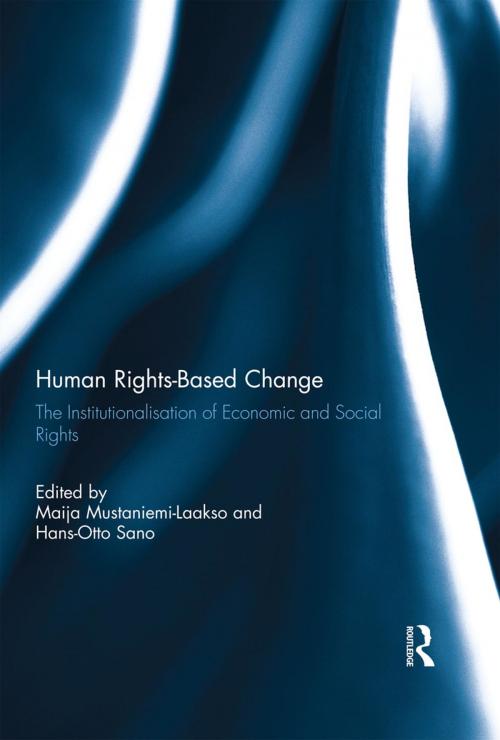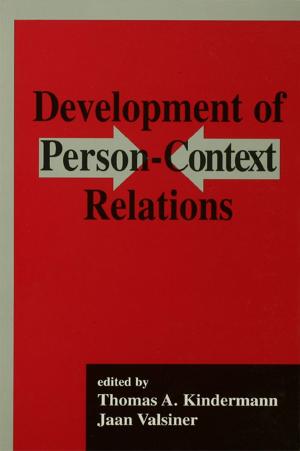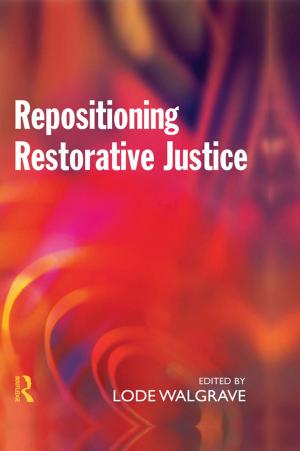Human Rights-Based Change
The Institutionalisation of Economic and Social Rights
Nonfiction, Reference & Language, Law, Civil Procedure, Civil Law| Author: | ISBN: | 9781315459431 | |
| Publisher: | Taylor and Francis | Publication: | March 8, 2018 |
| Imprint: | Routledge | Language: | English |
| Author: | |
| ISBN: | 9781315459431 |
| Publisher: | Taylor and Francis |
| Publication: | March 8, 2018 |
| Imprint: | Routledge |
| Language: | English |
This book provides different analytical perspectives into how human rights-based approaches to development (HRBADs) contribute to change. Based on the understanding that HRBADs are increasingly integrated into development and governance discourse and processes in many societies and organisations, it explores how the reinforcement of human rights principles and norms has impacted the practices and processes of development policy implementation. To reflect on the nature of the change that such efforts may imply, the chapters examine critically traditional and innovative ways of mainstreaming and institutionalising human right in judicial, bureaucratic and organisational processes in development work. Attention is also paid to the results assessment and causal debates in the human rights field. The articles discuss important questions concerning the legitimacy of and preconditions for change. What is the change that development efforts should seek to contribute to and who should have the power to define such change? What is required of institutional structures and processes within development organisations and agencies in order for human rights integration and institutionalisation to have transformative potential? This book was previously published as a special issue of the Nordic Journal of Human Rights.
This book provides different analytical perspectives into how human rights-based approaches to development (HRBADs) contribute to change. Based on the understanding that HRBADs are increasingly integrated into development and governance discourse and processes in many societies and organisations, it explores how the reinforcement of human rights principles and norms has impacted the practices and processes of development policy implementation. To reflect on the nature of the change that such efforts may imply, the chapters examine critically traditional and innovative ways of mainstreaming and institutionalising human right in judicial, bureaucratic and organisational processes in development work. Attention is also paid to the results assessment and causal debates in the human rights field. The articles discuss important questions concerning the legitimacy of and preconditions for change. What is the change that development efforts should seek to contribute to and who should have the power to define such change? What is required of institutional structures and processes within development organisations and agencies in order for human rights integration and institutionalisation to have transformative potential? This book was previously published as a special issue of the Nordic Journal of Human Rights.















